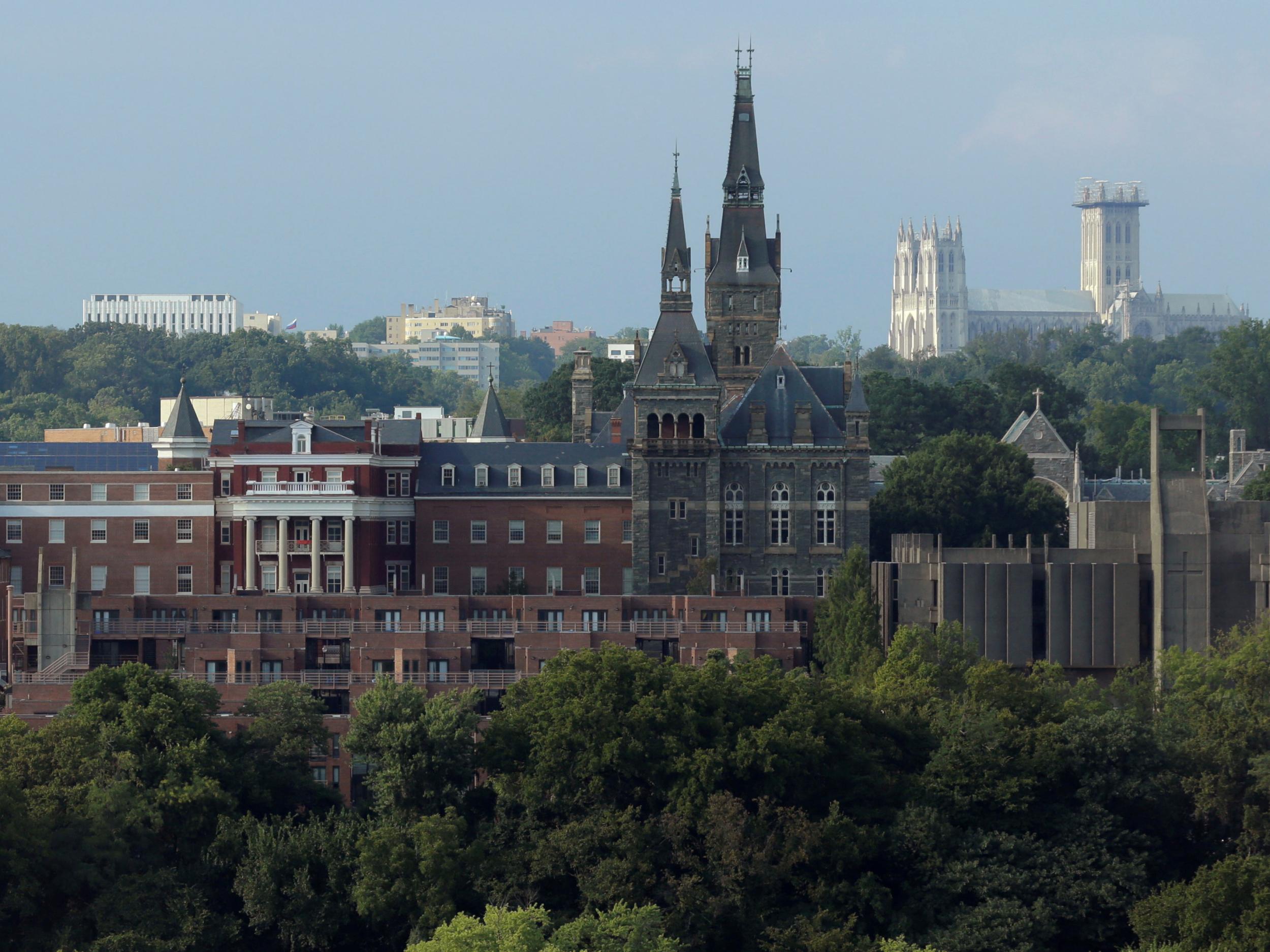Georgetown University renames buildings after African-American slaves it sold in 1838 to pay off debts
Institution apologises for part in nation's 'original sin' and names halls after 19th century servants Isaac Hawkins and Anne Marie Becraft as part of reparation campaign

Your support helps us to tell the story
From reproductive rights to climate change to Big Tech, The Independent is on the ground when the story is developing. Whether it's investigating the financials of Elon Musk's pro-Trump PAC or producing our latest documentary, 'The A Word', which shines a light on the American women fighting for reproductive rights, we know how important it is to parse out the facts from the messaging.
At such a critical moment in US history, we need reporters on the ground. Your donation allows us to keep sending journalists to speak to both sides of the story.
The Independent is trusted by Americans across the entire political spectrum. And unlike many other quality news outlets, we choose not to lock Americans out of our reporting and analysis with paywalls. We believe quality journalism should be available to everyone, paid for by those who can afford it.
Your support makes all the difference.Georgetown University moved to atone for its historical links to slavery on Tuesday by holding a religious service and renaming buildings after African-Americans, including for one of 272 slaves sold to help fund the Washington school.
The packed liturgy service and building dedications were the latest step by a US Catholic-run university to make amends for ties to slavery and racism.
The movement gained force in late 2015 when students at dozens of US colleges protested legacies of racism on campus. Harvard, Brown, Princeton, Yale and Duke are among schools that have addressed their links to slavery and racism.
Following protests, Yale University said in February it would change the name of a college dedicated to a 19th century defender of slavery, John C. Calhoun.
Georgetown President John DeGioia said at the religious service, which included slave descendants, that the school had been complicit in the United States' “original sin” of slavery.
“We offer this apology for the descendants and your ancestors humbly and without expectations, and we trust ourselves to God and the Spirit and the grace He freely offers to find ways to work together and build together,” he said.
The 18,000-student university renamed two buildings that had honoured school presidents who oversaw the 1838 sale of 272 slaves from church-affiliated plantations in Maryland. The money went to pay off college debts.
One was named for Isaac Hawkins, whose name appeared at the head of the bill of sale, and a second was dedicated to Anne Marie Becraft, a black 19th-century educator.
Sandra Green Thomas, president of the GU272 Descendants Association, told worshippers no other group had shown more faith in the US promise of freedom than African-Americans.
“The certainty of forgiveness upon the act of contrition is one of the most hopeful and joyful aspects of the (Catholic) faith,” she said.
Georgetown also has given admissions preference to descendants of the 272 slaves, plans a slave memorial and has created an African-American studies department.
One of Hawkins' descendants, Mary Williams-Wagner, said other efforts at reconciliation were still needed, such as identifying all descendants of the slaves sold by Georgetown.
“Everybody has to have a seat at the table to talk about what it is we're going to do as we move forward,” she told Reuters after the ceremony.
Reuters
Join our commenting forum
Join thought-provoking conversations, follow other Independent readers and see their replies
Comments